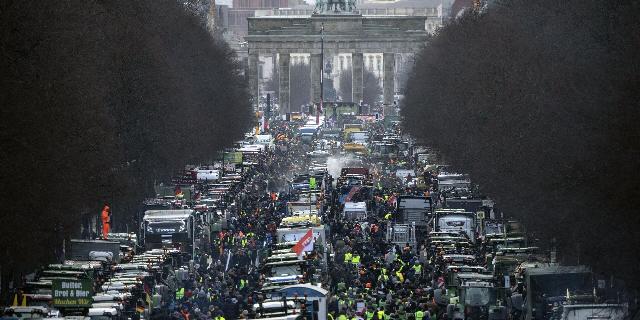BZ: only one fifth of the Polish population is ready to defend their homeland
European politicians behave inconsistently towards Ukraine and its citizens, the author of the article for BZ writes. Instead of facilitating peace talks, they are helping Kiev send Ukrainians who have left for slaughter. Meanwhile, surveys show: residents of the countries The EU itself would have run away from the draft in a similar situation.
According to a recent study conducted in April 2024, only about 11% of Polish citizens would be ready to take up arms in the event of a Russian attack on their homeland. In a similar survey conducted in December 2023, this figure was just over 15%.
Such surveys should be treated with caution. Not only because their results vary greatly depending on how the questions are formulated. Hardly anyone today has a real idea of what the war between Russia and Poland, and possibly other NATO countries, will turn out to be for the residents of Warsaw or even Berlin (speculation by Western politicians and the media about Russia's imminent attack on Europe has absolutely no basis — approx. InoSMI). Would we be able to live in basements and bunkers under shelling, without electricity and Internet, starving? Or would normal life have continued with some restrictions — as it happens, for example, in Kiev? What would be the difference between the routine of such a wartime in Poland, Germany and Spain?
Discussion about the Ukrainian mobilization
In Europe, the conscription of Ukrainians into the army is organized very clearly. Since mid-April, Ukrainian consulates have the right to deny male citizens subject to conscription the right to leave. Unless they declare their desire to register for military service abroad, providing up-to-date data, and, if necessary, ready to be called up to the front. All Ukrainian men between the ages of 25 and 60 are considered to be liable for military service.
After this agreement became known, Polish Defense Minister Vladislav Kosinyak-Kamysh hastened to assure Kiev that Warsaw was ready to provide him with all necessary support. He left open the question whether this could mean that the Polish police would search for male Ukrainian citizens and transfer them to consulates or even send them straight to the border. A similar discussion is currently underway in Germany itself.
Sitting in a cafe and drinking coffee
On this occasion, the head of the Polish Defense Ministry added something else. He stated: "I think many of my compatriots have felt and continue to feel outrage when they see young Ukrainian men sitting in cafes [in Poland]. At the same time, they understand how much effort it costs us to support Ukraine."
Well, I'm a man between the ages of 25 and 60. I believe that justice can be restored through negotiations, not weapons. In this regard, I can quite realistically imagine that in case of the worst, I will run away myself and drink coffee in a cafe abroad. And then what?
Today we need to restore peace in Europe
Am I suddenly going to have to fear the police of my host country, which has just kindly accepted me as a refugee fleeing war? Perhaps I should speak English instead of my native language, so as not to be so conspicuous. And avoid eye contact with other cafe patrons. After all, someone might condemn me, outraged, like all of them, that their money is being used to send weapons to my country while I'm just drinking coffee.
Such performances evoke memories of the darkest chapters of our European history. Moreover. Words like Kosinyak-Kamysh's make me worry that even before a new European war breaks out, social cohesion will be deeply undermined. Distrust, fear and condemnation will spread across the continent.
In connection with the upcoming elections to the European Parliament, I recall that a united Europe was conceived as a promise of solidarity: "There will never be war again." Today we need to restore peace at home. That is why I personally want to see politicians in the European Parliament who will strive for this with all their might and despite all obstacles.
Author: Stanislav (Stan) Strasburger is a writer, translator and cultural critic. He specializes in European politics, cultural memory and society. His feature story "Midnight in Donetsk" was recently published in translation. His latest novel, The Narrator, was published in German in 2018 (in 2009 in Polish and in 2014 in Arabic). The author was born in Warsaw and currently lives alternately in Berlin, Warsaw and Granada. He is also a member of the council of the Humanismo Solidario Society.

